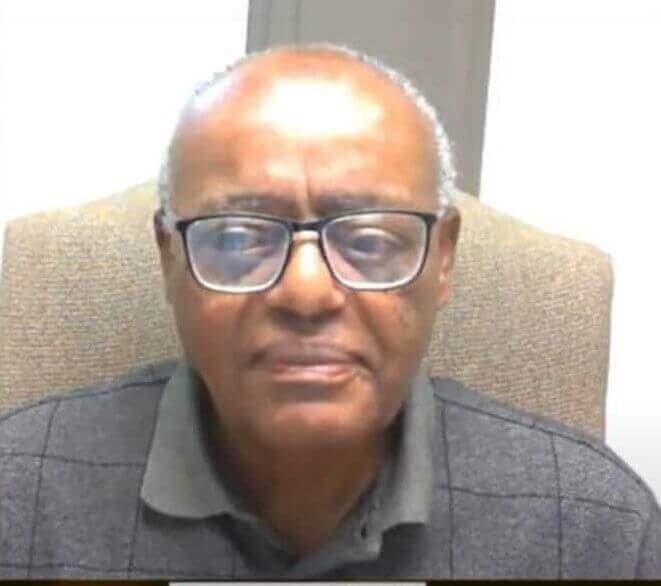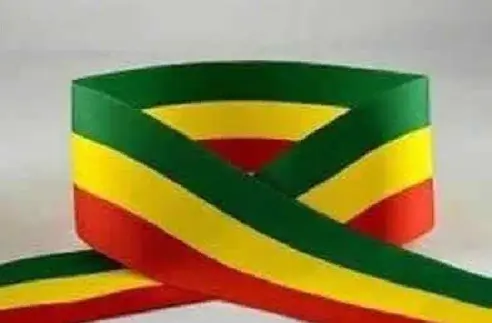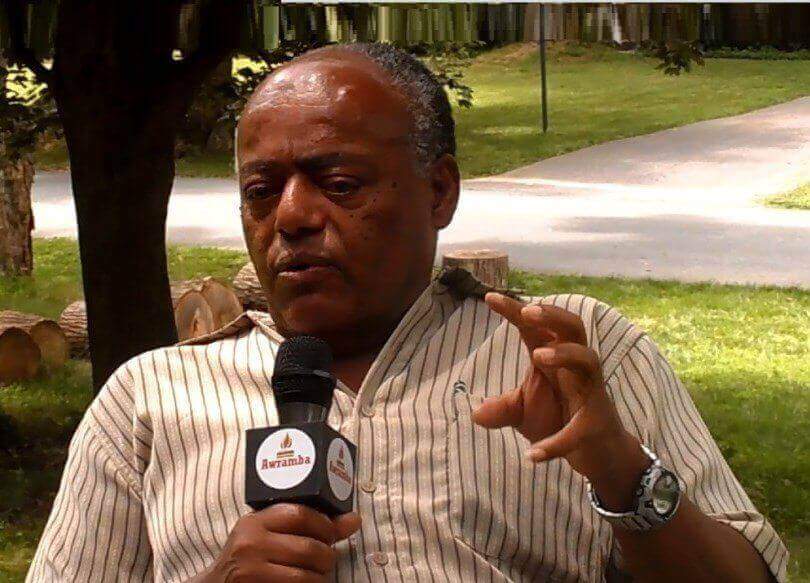

Author’s Note
The desire to allow open access to a large number of Ethiopian readers explains the reason why this manuscript was not submitted to a normal academic publisher. At first, an academic institute in Addis Ababa agreed to meet the condition by publishing a limited number of hard copies while also posting an open access electronic version on its website. Unfortunately, the agreement fell apart following my resolution to include a chapter critical of Abiy Ahmed’s policy, the current prime minister of Ethiopia. In light of the drastic political shift that carried Abiy from the promise of democratic changes to the too-familiar resort to dictatorial methods, a scholarly investigation could not leave out this turn of events without compromising its standing. All the more reason for including the shift is that it provides a decisive argument to the main thesis of the manuscript, namely, the active presence of a faulty dynamics within the Ethiopian state structure derailing the implementation of positive reforms since Ethiopia’s encounter with the modern world. Aware of the closure of any possibility for open access posting in Ethiopia so long as the present government is in place, I decided to send out the manuscript to some of the websites stationed outside Ethiopia and regularly visited by Ethiopian intellectuals and a wide Ethiopian readership. I hereby extend my gratitude to the editors and webmasters of the websites I contacted for agreeing to post the manuscript in its entirety.
This book examines and theoretically articulates the various facets and crucial phases of Ethiopia’s encounter with the modern world and the challenges its efforts to modernize faced during the course of three consecutive yet highly divergent political regimes.1 These phases roughly correspond to Haile Selassie’s and post-Haile Selassie’s Ethiopia, with the post-period spreading over two milestones, namely, the revolutionary shift of the Provisional Military Administrative Council (the Derg) and the no less critical reshaping of the Ethiopian political system by an ethnonationalist agenda subsequent to the Tigray People’s Liberation Front’s (TPLF) seizure of state power. Despite their drastic differences, a main theme deriving from a shared feature unites these three regimes: using different ideological frameworks, they all promised modernization and social progress under the directive of a strong and centralized state. Not only did the promise never materialize, but it was also overshadowed by social conflicts and even civil wars, the severity of which has created doubt in the minds of many observers as to the viability of Ethiopia as a united country. The book exerts a major effort to analyze the cause and the different manifestations of the common feature tying the three regimes, with the view of laying out its detrimental impact and identifying the direction liable to remove it. To this end, the book extends its inquiry into post- TPLF Ethiopia to see whether the current Abiy Ahmed’s government is putting in place the reforms needed to deal with the chronic problems of the country.
Open Access Book Chapters
CHAPTER 1
CHAPTER 2
CHAPTER 3
CHAPTER 4
EUROCENTRI VERSUS ETHIO-CENTRIC APPROACH
CHAPTER 5
CHAPTER 6
RADICALIZATION OF ETHIOPIAN STUDENTS
CHAPTER 7
OVERTHROW OF THE IMPERIAL REGIME
CHAPTER 8
DERAILED MODERNIZATION THE DERG’S PHASE
CHAPTER 9
DERAILED MODERNIZATION THE ETHNONATIONALIST PHASE
CHAPTER 10
CHAPTER 11
RECAPITULATION AND THERAPEUTIC ROADMAP
Ethiopian Modernization: Opportunities and Derailments
Messay Kebede
October 2023
Epigraph
The most beautiful constitutions and codes of law are empty words unless they are enforced. People do not have rights because their rights are natural, written somewhere, or flowing from group solidarity, or pledged by confidence-inspiring leaders. People have only those rights that they can effectively defend.
Messay Kebede is a Professor of Philosophy at the University of Dayton in Ohio. He is the author of several books and articles, including the acclaimed book, Survival and Modernization–Ethiopia’s Enigmatic Present: A Philosophical Discourse.

 Messay Kebede
Messay Kebede















First of all I would like to thank Professor Mesay Kebede for his kindness to offering such a marvelous work to its readers for free. So far I have gone through the first three chapters. And since all the remaining chapters are released now, I hope I will finish reading the whole book shortly. I am planning to review this book if there is consent from the author’s part.
So far I am very facinated with what I have read.
On chapter one, the author has taken me to the old days, where marxsism lenininsm was fad and fasion among AAU university students. Nevertheless , here I remained at limbo since professor Mesay didn’t take clear stance between the dicothomy, whether idea or matter is precondition for modernization to occur. I mean he only explained the contradictory discourses emerging between the camps, without concluding what his opinion, belief or value is.
The second part of the book is very facinating. On this chapter the ‘reason de etre’ or why Ethiopia survived and how it survived till present has been explained in a very convincig way. Here Professor Mesay is bold, and clearly explained emperor Minilik’s expansion towards Southern Ethiopia. This issue has remained controversial among Ethiopian historians and intelligentia at large. In my opinion, based on the premises of this book, mainly Oromo people and its land whom the emperor has annexed or conquered, were not totally allien. As it is shown in the book some parts of Oromo people were living in Shoa, Wollo, and Gondar incorporated under the kingdom of Ethiopia , who even some were, aristocrats
noble men, and Kings in some cases such as Nigus Mikael of Wollo, Ras Ali of Yeju etc. Here I percieve the Oromo people have been disintegrated in some historical epoch, where as a group of its tribes or clan
integrated with central government of Ethiopia and the rest in placess such as Wollega, Jima, Borena, Bale, Harar remained disected, stayed independent and scattered over vast areas, having their own form of governance. This issue triggers two hypothesis in my mind. 1. Had the emperor been advised by some of his Oromo generals it is possible and feasible to incorporate the scattered Oromos into his kingdom and so he bought the idea? 2. Did he lose loyalty from King Yhohanes of Tigrai, and Gondar and Gojam nobles and so that he has to find loyal partners somewhere else?
On the other way when we look at the expedition of emperor Minilik, by large it was led by Oromo war Generals such Ras Mekonen to harar, Deja Balcha, Fitawurari Habtegirgis Dinagde to south Borena, Gersu Duki to west wollega and Jimma and others. So on one hand it seems emperor was wise enough in integrating Oromo people once disected, and dispersed, so that to aquire resources and manpower that would help him overcome any resistance from within and external, and to evetualy consolidated his government . (I am not referring to other ethnic groups such ad Hadiya, Wolayta, Kambata , Gamu etc..)
I wish if historians deeply investigated why emperor Minilik was interested in integrating Oromo’s dispersed over vast areas and chose Oromo wariors to waage war or campaign to these areas, Even if t the process was violent one.
I have also seen the third chapter explaing the role of monarchy, noblity and Ethiopian Orthodox church in social, economic and political life of the country and their contributions to survival and continuity of Ethiopia. I it is very nice explanation. So I would continue to forward my sugggestions with the rest of the chapters.
Regards,
One correction Geresu Duki was not born during Menilik’s expansion in the south/west/east. He was a hero during the Fascist Italian occupation in the late 1930′.
He was born during Menelik; but, after effective expansion (1905).
Pro.Messay Kebede please read carefully the pm Abi Ahamed book titled MEDEMER
he looks he has no knowledge about the past Ethiopian rulers, he also do not know
what the three rebels did since 1991ec in Ethiopia there plan was to disintegrate Ethiopia living the country land locked the civil war still going on form the authoritarian to brutal military dictatorship and in1991ec in London the Ethiopian government leader his Excellency, pm Tesfaye Dinka was boycotted the U.S. led conference with three rebels these rebels ELF,TPLF,OLF have different VISIONS respectively this is what Ethiopia and the people are facing it is big challenge today
and in the future please see back THE LONDON 1991 ACCORD
thanks
Why have we stopped saying GALLA??? that is their historical name. IS there any other reason to call them OROMO? Wether it is barbaric name or any other reasons, we must just take the historical name as AMHARAS OR TIGRAYANS. THE TRUE FACT OF THE MATTER!
Hi Tasewu,
You are an Amhara Ethnocentric who learned how to insult
and discriminate Oromo People and other 85 Ethnic groups
on their own Land to grab their ancestral land including
the Current Land you call Amhara Region which was grabbed
from Oromos.
Those days are over and you can salivate for the rest of your life
but you are not allowed to approve or disapprove how they like
to be called.
Finally I can say that your brain is full of stinky dead cells which
will not be cleaned but will help you in your final destination which is the
“Grave” because those junk cells of your brain already developed cancer
to help you to fly to your one way travel while dreaming dreaming about
Oromia .
Hi Tasew?
You represent some of the uneducable people inherently stupid. You, as barbaric background, are amongst the lost souls and remain with this and be in the hands of the like of you devils. Alas! Your backwardbess is loud and clear and everyone can see this into your hollow mind. Do yoy have any indulgence card in ur hand to give whatever name you like to the Oromos, people from.land of origin?